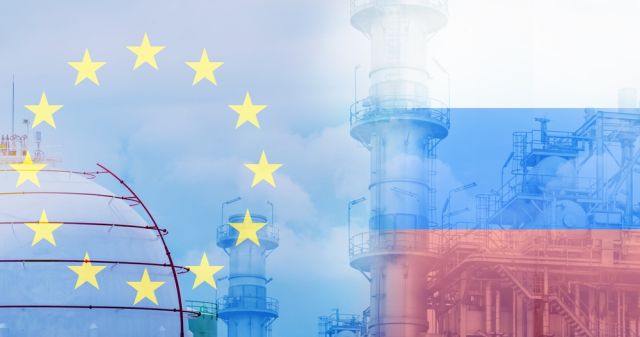
Recent geopolitical events in Ukraine and Gaza have only highlighted and reinforced the value and importance of security. (Source: Shutterstock)
Despite an abundance of U.S. LNG creating a kind of energy security blanket for some regions, heighted conflicts and outright wars in Ukraine and Gaza have thrown up challenges for the energy transition in other parts of the globe, according to analysis by Norway’s Equinor.
Geopolitical conflicts “have made the energy transition more fragmented, and positive developments are in many cases offset by negative ones,” Equinor said in a June 6 press release.
Equinor’s recently released report, “Energy Perspectives 2024,” includes two scenarios for the future of global energy markets: Walls and Bridges. The scenarios highlight the contrast between the current pace of the energy transition— the Walls—and the swift, radical changes needed to meet the 1.5 C goals outlined in the Paris Agreement— the Bridges.
Enverus Intelligence Research (EIR) Managing Director-Head of Energy Transition Research Ian Nieboer said the matter revolves around the energy trilemma: energy security, affordability and reliability and sustainability.
Differences in countries’ economic progress and accessibility can unbalance the trilemma equation.
Recent geopolitical events in Ukraine and Gaza have only highlighted and reinforced the value and importance of security, Nieboer said.
“For some, U.S. LNG may represent a source of secure (feeling likely to be mixed about dependence on U.S. supply, depending on the relationship), relatively sustainable (it’s not coal) energy,” Nieboer told Hart Energy on June 10. “But it’s probably expensive versus the alternatives (in most parts of the world, natural gas is a premium fuel). So it can contribute to a solution to the energy trilemma for some, and perhaps not for others.”
In regions such as Europe and developed Asia, the sustainability attributes make natural gas comparatively attractive versus other parts of the world, “where affordability and security (domestic coal can look very attractive) take precedence,” Nieboer said.
The Paris Agreement seeks to hold “the increase in the global average temperature to well below 2 C above pre-industrial levels” and pursue efforts “to limit the temperature increase to 1.5 C above pre-industrial levels,” according to the United Nations website.
RELATED
Bill Gates: ‘A Heroic Effort’ is Beginning, but Climate Goals Still Won’t be Hit
“Despite some region’s adamant push on energy transition efforts, both through stimulus and regulation, the global development over the past few years has made the challenges of delivering on the 1.5 C ambition larger,” Equinor Chief Economist Eirik Wærness said in the release.
Following a number of years of a tightening energy supplies, particularly in Europe, the outlook is brighter. Components of the energy trilemma such as supply security and affordability have taken a front seat and even contributed to acceleration of transition in some sectors, Equinor said in the release.
“Despite short-term setbacks, the longer-term signals clearly point in the direction of significant energy transition and decarbonization, but the walls have become thicker and the bridges narrower, and that adds to the uncertainty of the speed and scale of decarbonization towards 2050 and beyond,” Wærness said.
Recommended Reading
US LNG Exporter Venture Global's Shares Dip After IPO
2025-01-24 - Venture Global’s pre-IPO pricing at $25 a share valued the Gulf Coast LNG operator at some $65 billion, but shares fell below $25 by about 3% in trading Jan. 24.
Tamboran, Santos Agree to Study Possible Darwin LNG Expansion
2025-01-23 - Tamboran Resources Corp. and Santos Ltd. entered a memorandum of understanding for technical studies, which could lead to a 6 mtpa expansion of Darwin LNG.
EIA: NatGas Storage Withdrawal Misses Forecasts by 20 Nearly Bcf
2025-01-23 - Natural gas prices fell following the release of the U.S. Energy Information Administration’s weekly storage report showing a near-20 Bcf miss on analysts’ expectations.
Targa Pipeline Helps Spark US NGL Production High in 2024
2025-01-23 - Analysts said Targa Resources’ Daytona line released a Permian Basin bottleneck as NGLs continued to grow.
CNOOC’s Long Lake Northwest Project Begins Crude Production
2024-11-06 - CNOOC’s Long Lake Northwest project will reach a peak production of 8,200 bbl/d of crude in 2025.
Comments
Add new comment
This conversation is moderated according to Hart Energy community rules. Please read the rules before joining the discussion. If you’re experiencing any technical problems, please contact our customer care team.






